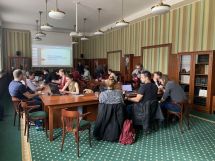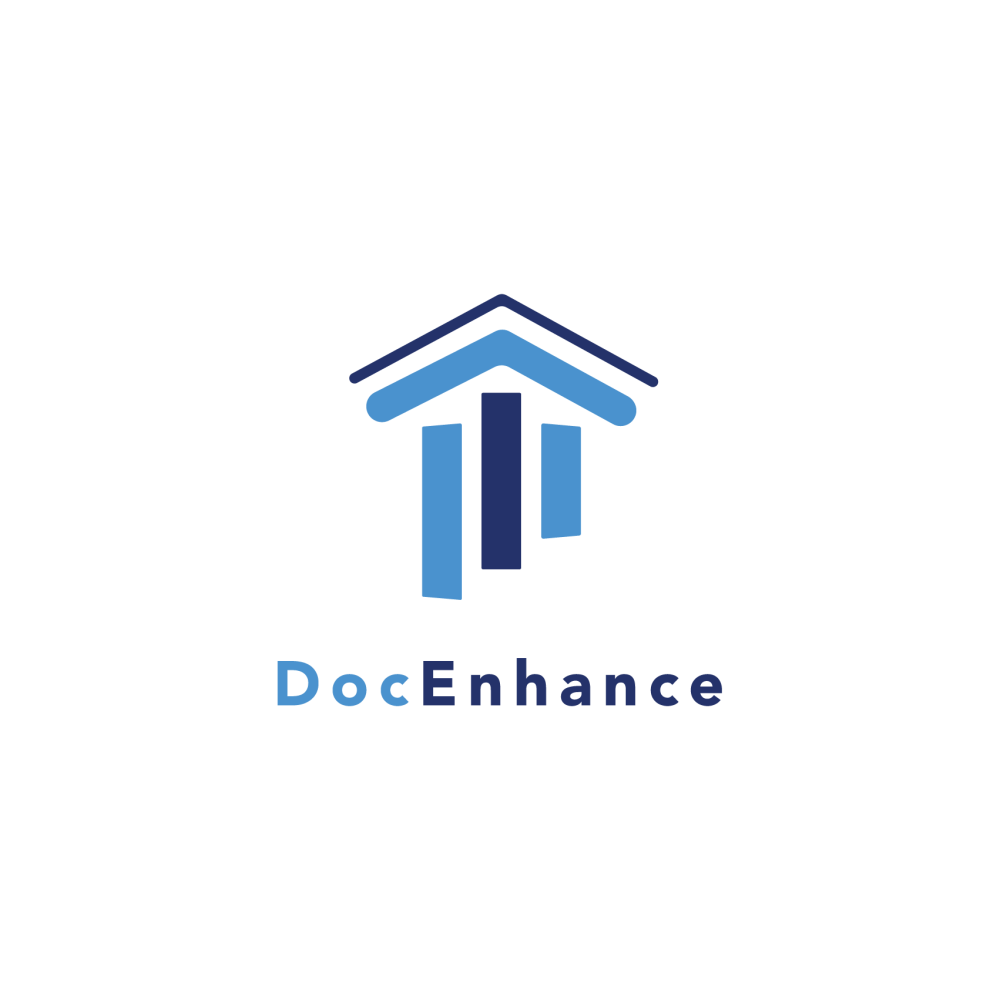News - DocEnhance Data Stewardship course in 2023
- The course starts with Module 1 (video lectures from March 1 to April 10, 2023) accessible for the enrolled participants through UCT Moodle. One week is sufficient for a participant to go through all the materials and readings.
- Modules 2 & 3 will take place in person at UCT Prague. See the description of Module 2 and Module 3 at the end of this page.
- The whole course will be in English.
Application
- Application deadline: March 13, 2023
- Enrolment confirmation will be sent out by the end of February, 2023
- Online video lectures of Module 1 for enrolled participants will be available from March 3 to March 31, 2023.
About the course
- See more about Data Stewardship course at docenhance.eu
Feedback from participants
“I acquired some highly interdisciplinary knowledge.“
***
“I must say that I didn’t only learn new topics in the course, but I also enjoyed it and made new friends (most probably lifetime friends) during the grouping sessions. It was a lifetime experience for me.“
***
“The last one The Unipetrol excursion was my favourite among all the modules. It was my first experience in an industry. So I enjoyed each and every moments alot. The only thing I wanted to say on that part is we should have more time to spend there. I really wish to be there for longer time.“


Watch introduction video below (see also description of the course below)
Course description
As research data becomes more openly available in the context of Open Science, data stewardship is a skill in high demand, both within and beyond academia. In this course PhD candidates will undertake the study of data management with the attention of how to put into practice the theoretical and practical skills. Created by experts in the field, it focuses on deepening skills that are sought-after within both the academic and private sector. This brand-new course will walk PhD candidates through all the steps of research data management, from finding relevant data to publishing an own dataset.
Aims of this course
- to introduce PhD candidates to the complexity and significance of data management
- to walk PhD candidates through all the steps of research data management, from finding relevant data to publishing an own dataset
- to help with the PhD thesis, while at the same time to make PhD candidates feel better prepared for a job outside academia after graduation
- to combine practical exercises with theoretical content
Why to apply
- Gain knowledge of handling your research data and master theory and concepts of data management
- Learn how to collect, analyse and manage research data with hands-on digital skills training, and on-site practical assignments in non-academic settings
- Deepen your knowledge of publishing your own data set
- Learn how to avoid spending unnecessary time and effort in other projects collecting similar data
- Experts and excellent lectors will provide you with your new skill
- A great opportunity for your self-development and your future career
Course content
The Data Stewardship course is beneficial mostly for PhD candidates and consists of three parts:
- Module 1 - (online lectures)
- Module 2 - workshops and assignments in local working teams at UCT, Prague
- Module 3 - workshops and regional assignments
Module 1
Module 1 of the DocEnhance Data Stewardship course aims to give PhD candidates a general introduction to the basics of how to handle research data in a PhD thesis. PhD candidates are given the opportunity to watch videos and make assignments in the PhD Hub platform. After successfully completing this online part, you will receive a certificate.
Module 1 overview
1. Introduction
In this section, you will learn about why research data management (RDM) is important for science and society, and why good research data management is beneficial for you as a junior researcher. You will also get an introduction to some basic RDM concepts that are essential to fully benefit from the reminder of this course.
1.1 The importance of research data management
1.2 Transparency and openess: Requirements and expectations
1.3 The research data management life cycle
1.4 The FAIR data principles
1.5 The Data Management plan
2. About research data
In empirical sciences, it is expected that you base your arguments on the analysis of data and not on anecdotal evidence, personal beliefs or guesses (and certainly not on alternative facts). Trained PhD candidates know this, so this section will not dwell on the importance of data in research, but rather on the research data landscape.
2.1 Defining and categorising research data
2.2 The diversity of research data
2.3 Data and the long tail of research
2.4 Big data
2.5 Data protection
2.6 Describing your own research data
3. How to search and cite research data
Before embarking on a new project or study it's advisable to locate any relevant research, in order to make sure that you are making use of the latest information. Under this section you will learn more about how you can find and cite relevant data and use it in your own research.
3.1 Accessing research data
3.2 Data search engines
3.3 Data archives/repositories
3.4 Data citation
4. Research contracts
Understanding your rights and responsibilities is crucial in collaborative projects, and it is advisable to regulate this through research contracts. In this section, you will get an introduction to the fundamental principles of research contract law.
4.1 Research contracts
5. How to structure and document research data
In this section you will learn how to best structure your dataset into files and folders, and what you should keep in mind when giving names to your files and folders. You will also learn how to document a dataset, and why good documentation is vital for the quality and reusability of a dataset.
5.1 Electronic lab notebooks (ELN)
5.2 Organizing a data set
5.3 The Readme-file
5.4 Preferred file formats
5.5 DANS list of file formats
6. How to store research data
Power outage, hardware or software problems, USB keys gone missing. We have all at some point experienced just how frustrating that may be. In this session you'll learn more about how to avoid loss of data and how the nature of the data you are working with has implications for how they can be stored.
6.1 How to store research data
7. How to visualise research data
Visualisation of your data may be crucial in order to communicate the information that your data holds. In this section you will learn the basics of good visualisation of your data, you will learn of different plot types, and also of useful tools to use.
7.1 Introduction and motivation
7.2 Figure design, design process, and fundamentals
7.3 Gallery of visualizations
7.4 Choosing the right tools
7.5 Data formats
7.6 Figures and tables in reports and publications
8. How to archive research data
Archiving research data is a crucial part of the research process. It's not just about fulfilling data sharing requirements, but also about sharing your findings and making the results of your research publicly available. In this section you will learn about the basics of data archiving/sharing; why it is important, and what considerations you should take into account when you are in the process of archiving/sharing research data.
8.1 'Sharing is caring'
8.2 What, where and when to share
8.3 Open/Embargoed/Restricted
8.4 Choosing data repository
8.5 Finding reputable data repositories
9. Rights and licenses for research data
Who holds the rights to your research data, you or your employer? Is "your" research data even yours? Questions like these are not always entirely easy to give a straightforward answer to, in this section you'll learn more about ownership, copyright and licenses in regard to research data.
9.1 Research data: Terms of use
9.2 Rights in research data
9.3 Licenses for research data
9.4 The Attribution condition in Creative Commons licenses
10. How to write a data management plan
In this section you will learn to plan your project well. The data management plan is a project management tool revolving around everything that has to do with your data. The key is to chunk down all the steps ahead of you, to help you through your PhD project step by step.
10.1 The motivations of data management plans
10.2 The data management plan is a project management tool
10.3 Using DMP templates
10.4 Quiz
11. Summary and exam quiz
Module 2
Module 2 is based on active learning from the participating PhD candidates. It aims to enable PhD candidates to better understand to how to put theory in practice. The course is also geared towards giving PhD candidates the opportunity to improve their knowledge of data storage so that they can begin to work practically with planning, collecting, storing, processing and analysing data and the subsequent archiving, citing and structuring. PhD candidates will make use of what they learned in Module 1, through practical assignments working in small groups with other PhD candidates. Group exercises and discussions will draw upon local resources and meet local demands. PhD candidates are encouraged to choose their own data, however, they will be given a dataset from the lecturers, which might inspire them.
Module 2 schedule in 2023
Session 1: The importance of RDM and open archiving
April 14, 9-12am, room BS9
Lectors: Eva Hnátková, Martin Schatz
Session 2: The Data Management Plan
April 14, 13-16pm, room BS9
Lectors: Martin Schatz, Eva Hnátková
Session 3: Structuring and documenting research data
April 17, 9-12, room A40
Lectors: Aili Sarre and Andreas Klein (Artic University of Norway, Tromso)
Session 4: Data storage, file formats, and the FAIR data principles
April 21, 9-12 am, room BS9
Lectors: Jan Vališ, Adam Sklenař
Session 5: Archiving research data
April 21, 13-16pm, room BS9
Lectors: Adam Sklenař, Jan Vališ
Session 6: Searching, citing, and licensing research data
April 24, 9-12am, room A40
Lectors: Jan Vališ
Module 3
Module 3 offers practical assignment/tasks in cooperation with some business or public service entity, which will help PhD candidates to prepare for a career outside academia. Module 2 and 3 are organized as workshops, and will give you hands-on training in research data stewardship. This module focuses on putting into practice the theoretical and practical skills acquired in the previous modules in a non-academic setting!
Module 3 schedule in 2023
Session 1: European and national view
April 28, a whole day in room BS9
Lectors: TBA
Excursion: ORLEN Unipetrol
one whole day in May 19
Lectors: TBA
 The DocEnhance Data Stewardship course is being introduced in frame of H2020 project SwafS-2018-2020 „Enhancing skills intelligence and integration into existing PhD programmes by providing transferable skills training through an open online platform“ (docenhance.eu)
The DocEnhance Data Stewardship course is being introduced in frame of H2020 project SwafS-2018-2020 „Enhancing skills intelligence and integration into existing PhD programmes by providing transferable skills training through an open online platform“ (docenhance.eu)




